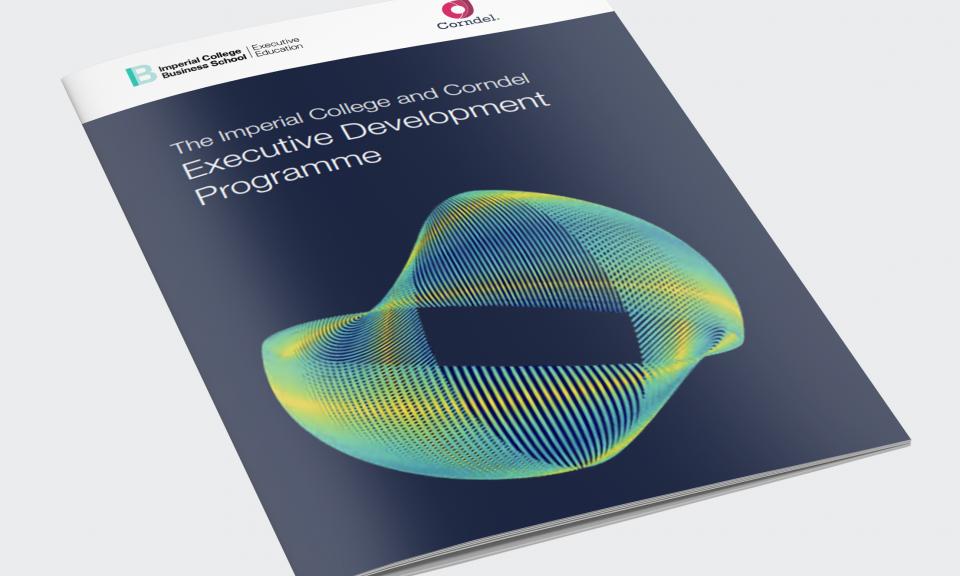
Dear Nicky Morgan
I have been considering writing to you for some time and have decided, in the light of thepublication of the exemplification materials by the Department for Education that I cannot leave it any longer. I am writing to complain about the standards now expected of Year 6 pupils at the end of key stage 2. I had hoped that your recent video on Twitter would address some of my concerns and queries, but unfortunately it has compounded them. In this letter, I will raise all of my concerns relating to this topic and would very much appreciate you sharing your responses with me.
I am currently an English lead at an outstanding three form-entry primary school in London. We have consistently outstanding attainment and value added at KS2. I have led English in a variety of schools since 2001, have worked as an expert literacy teacher in Tower Hamlets and also as a local authority moderator. As an English specialist I feel passionately that children need to learn to read and write with fluency before moving onto secondary school. I have seen many government-led changes: national literacy strategy, primary strategy, the Year 6 grammar test, the 2014 new curriculum and abandonment of national curriculum levels. I have worked with all these but feel that the situation we have reached now is untenable. This is primarily because the standards expected are unrealistic.
KS2 grammar test
While I absolutely agree that standards in literacy need to reach a certain point before children begin their secondary education, I cannot agree with the content now expected of 10- to 11-year-olds. As an English graduate, I have what I believe to be a good grasp of the English language and can show children how to use it for a range of purposes and audiences. However, the new grammar curriculum is forcing teachers to develop a didactic style, teaching by rote terminology such as “subordinating conjunctions”, “subjunctive form”, “passive”, “modal” and “cohesion” to name but a few. For the children I work with, many of whom have special educational needs and disabilities (SEND) or English as an additional language, these terms are abstract to the point of distraction. While correct grammar is vital for writing to maintain flow and purpose, the requirement for children to use and apply this terminology is unnecessary and there has been no evidence published that this is an effective way of raising standards.
Secondary colleagues of mine (English specialists) confirm that their pupils would struggle with much of this work. The standards expected now for grammar at the end of KS2 have risen so rapidly that we are struggling to get the content covered in time, let alone ensure the children have consolidated the concepts by teaching it in an engaging and meaningful way. A child in our school who achieved a level 6 in grammar, punctuation and spelling last year (with virtually full marks) sat the current sample test and only achieved 22/50 which would indicate that she would probably not currently meet expected standards. This really highlighted the massive gulf between standards expected in 2015 and 2016.
The children who do not meet the required standards will be required to take resits in Year 7. These resits will create huge amounts of stress for young people who are already adjusting to life in secondary school. You were recently quoted in The Telegraph regarding the Year 7 resits saying: “These would help more children make progress in basic numeracy and literacy, which are essential for studying other subjects.”
I agree absolutely that grasping these basics is crucial for accessing the secondary curriculum, but would strongly disagree that these “involve” identifying subjunctive verbs or analysing conjunctions to a level not even seen at GCSE level. This grasp of the “basics” is something that you refer to frequently in your recent Twitter post, but as I will outline in this letter, the KS2 tests are simply not testing “basics” by any measure.
KS2 reading test
Along with the new grammar paper, there is of course a new reading paper, too. We have been trying to keep up with the new demands of this paper, which now focuses heavily on defining challenging vocabulary and analysing authorial intent (both previously skills which were very much within the level 5 domain). The main problem we now face, as teachers, is that we have no indication of what raw score will equate to an expected level of attainment. In previous years, we knew that a child who was scoring approximately 22/50 in a practice paper would be on track to achieve a level 4b. Although I do not advocate teaching to the test, it would be doing our children a disservice not to allow them to become familiar with these practice papers. This year, the situation is different. We have no raw score benchmark by which to set our standards and expectations as teachers. If we look at the interim teacher assessment framework for the end of KS2, the guidelines are not specific enough to support any teacher assessment, eg, “read age-appropriate books with confidence”. So, when completing practice papers, the children have no target to reach for as the target has not yet been decided. It will not be decided until after the children have completed their tests. Many teachers discuss this and you hear people saying things like, “Well I think the pass rate will be about 26/50.”
We are pulling numbers out of thin air. Indeed, as we were led to believe the writing standard expected would be roughly equivalent to a 4b/4a and that has turned out to be more like a 5a, I am apprehensive about what the expected raw score for reading will be. In your Twitter video, you state that it is impossible to publish the scaled scores until after the tests. I simply cannot accept that you are not able to give an indication of a raw score expectation. Any 11-plus, Common Entrance, GCSE, A-level, degree or PhD-level student would have a target to work towards. It is impossible to achieve your full potential (which I understand you feel strongly about) without this target in mind.
Writing exemplifications
Last week saw the publication of the Standards and Testing Agency KS1 and KS2 writing exemplifications and it is this publication that has finally prompted this letter. For the past few years, we have been preparing for “life without levels” since Professor Dylan Wiliam advised the government to stop schools using them. This huge change has brought great uncertainty to schools as we are under continued pressure to produce outstanding results and progress but have been given no way of measuring these two things. It is rather like asking a GP to ensure that none of their patients suffers from hypertension but removing all sphygmomanometers from the surgery. Each year I work as a local authority moderator, moderating standards in writing at Year 6. With the national curriculum levels, moderation was a simple task as all teachers were speaking the same language and had a common reference point. We were all clear about what steps children needed to take to progress and how we could support them with this. This year, without levels, there is no common language. We have set up working parties within our local schools to address this lack of common language but, even with this increased professional dialogue, making the judgements has been difficult. Indeed, the disappearance of national curriculum levels has created an unprecedented level of additional work, at a time when you are struggling to recruit and retain new teachers. So, we awaited the publication of the exemplification materials eagerly as we felt they would help us make judgements as to whether a child would meet end of year expectations or not. The exemplifications are problematic for a number of reasons:
- Standards: The standard expected for the end of Year 6 is now close to an old level 5a (despite the predictions that it would be close to a 4b or 4a). Last year the expectation for writing was a 4b. This shows a jump in expected attainment of two years (ie, from a 4b to a 5a). While I am more than happy to have ambitious targets for children (last year some of our pupils moved from a level 1 at KS1 to a level 5 at KS2), these new standards go beyond ambitious into the realm of absurdity. In effect, you are expecting all children in Year 6 to write as if they were able Year 8 pupils. This jump is unrealistic and unachievable for a huge number of children, particularly as they have only been working on the new curriculum for 18 months. Although your department has judged that this is “enough” time, I would disagree with this, as the huge amount of new concepts (particularly in grammar) is overwhelming. The fact that these exemplifications have only just been published contradicts what the DfE have said about giving teachers sufficient lead-in time for major changes.
- Checklist not “best fit”: The end of KS2 statutory assessment criteria (which is to be used by teachers and moderators) is now a checklist and not a “best fit” as the national curriculum levels were. This means that teachers will have to ensure that children have evidence of 29 different techniques/skills in virtually all their writing. As an example, a child who produces a wonderful range of writing (stories, poems, arguments) but fails to use enough modal verbs, will be deemed as not meeting the standard. This does not fit with your expectation of children leaving primary with a “good grasp of the basics”. Indeed, the Centre for Literacy in Primary Education (CLPE) – a much respected organisation working in many schools across the country – has recently published new writing scales to try and fill the assessment black hole created by the government. According to these scales, the expectations for Year 6 children are to be what CLPE describe as a “mature, independent writers”. I had thought we were aiming for fluency in basic reading and writing, not necessarily maturity at the age of 10 or 11. You have dismissed this concern about checklists, saying that, “stories about how teachers need to make checklists of hundreds of different tick boxes are also just plain wrong”. Unfortunately, if you present assessment criteria as a checklist, then that is how it will be used.
- Spelling: Spelling, which used to be tested separately, is now also assessed in the writing strand, despite assurances in the past two years that this would not be the case. Children are expected to spell most of the Year 3/4 word list and Year 5/6 word lists correctly in all independent writing to achieve the KS2 standard. These word lists are not just functional, generic words (eg, “doesn’t” or “their”) but specific words (eg, “accommodate”, “privilege”, “Parliament” and “mischievous”). These are words I would argue are not needed for “basic literacy”. For many years, I have encouraged children to develop their vocabulary in their writing, urging them to be creative and ambitious with their word choices. Now this ambition must be curbed as teachers will be encouraging their pupils to use only words they can spell correctly. This new expectation for spelling also means that no child with dyslexia or spelling processing problems will ever be able to start secondary school with an expected level of attainment. So, those children with SEND who have flair, creativity and write with a strong authorial voice (and who will certainly be encouraged to use spellcheck or spelling software such as Ginger for their secondary school essays) will be deemed as not ready for secondary. This seems discriminatory.
Child mental health
My final concern is that these issues will have a detrimental effect on the mental heath of our children. In December last year you joined forces with NHS England to launch a multimillion-pound joint mental health pilot scheme for hundreds of schools, stating that, “mental health is a key priority for this government and for me personally…the development of good mental health is vital alongside academic success in equipping young people with the skills needed to fulfil their potential”. I would argue that the vast and sudden leaps in attainment expected by your government do not fit with this mental health agenda in any way. In July this year, there will be teachers across the country telling many, many Year 6 pupils, that (despite the fact that they have worked incredibly hard, trying to understand and apply over 50 different technical grammar terms and to use 29 different techniques in all their writing), they have not reached the required standard for children of their age. They would have been fine had they been born a year earlier as they would have met the required standard. However, this year, they will be deemed as not up to scratch and so will begin their secondary education feeling dispirited and “different” to those children who did meet the standard. The Year 7 resits will do nothing to allay these feelings.
The way forward
I am keen for this letter not to be seen as the wild ramblings of a stressed teacher. So, I would make the following suggestions for things that would make an enormous difference to teaching professionals and the children in our care:
- The “checklist” model of the statutory assessment criteria for writing to be changed to a “best fit” model.
- Removal of compulsory spelling lists from the statutory assessment criteria.
- Rapid publication of guideline raw scores which will denote the expected standard (for grammar and reading).
- At the end of this interim framework, national curriculum levels to be reinstated, allowing all professionals, pupils and parents to communicate once again with transparency and rigour.
At a time when teacher recruitment and retention is at crisis point (numbers of teachers leaving the profession has increased by 11 per cent over the past 3 years) is it not the time to really reflect as a government on why these teachers are going? We are not workshy or wanting to coast along accepting mediocre outcomes for our children. We are passionate and desperate to send children off to secondary school with a love of reading and learning. Your current policies are doing all they can to extinguish this passion and pick apart this love of reading until we are left with a page littered with determiners, subjunctives and a collection of modal verbs, predominantly those of obligation not possibility.
I look forward to your reply and your thoughts on my suggestions. I would be delighted to share these views with your department as I know you are keen to listen to our views and make alterations as necessary.















